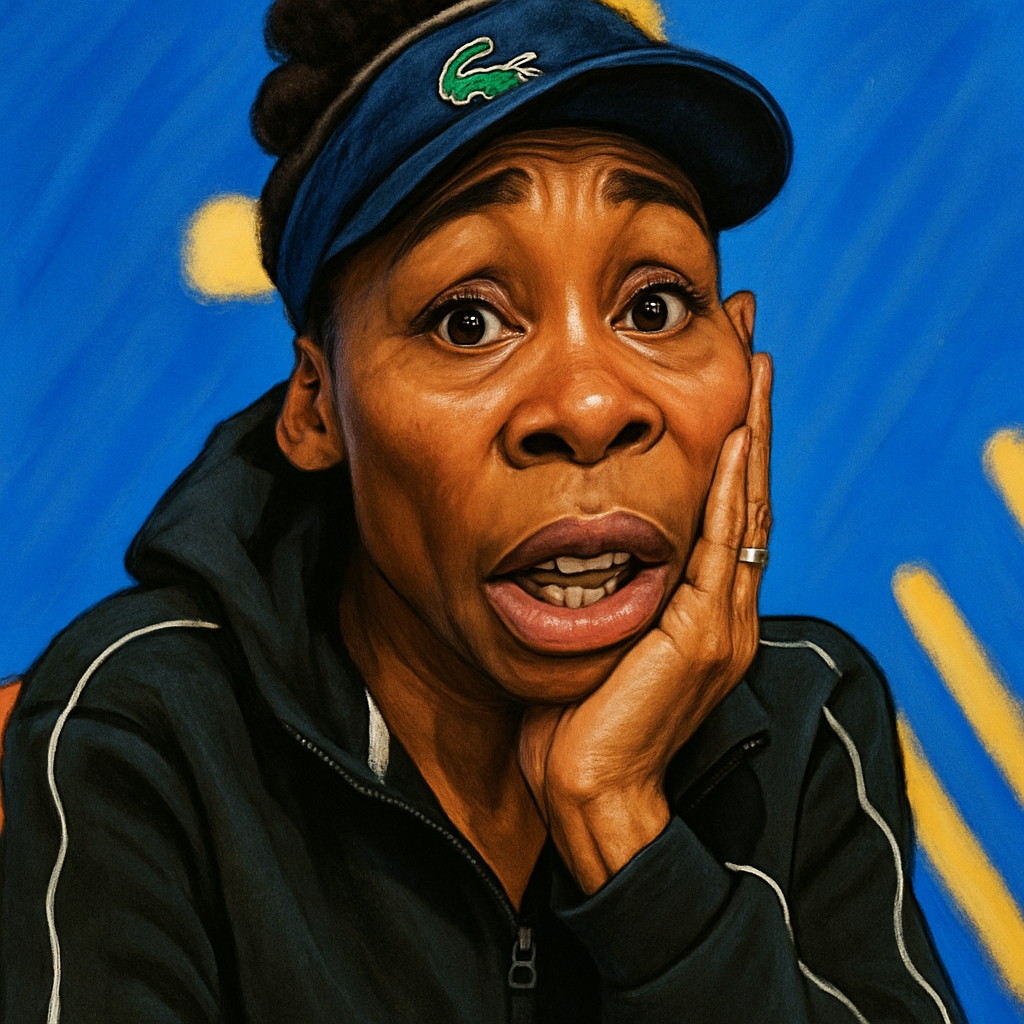NEW YORK — The 2023 US Open was not short on drama, but a fiery on-court confrontation between former champion Jelena Ostapenko and American Taylor Townsend during their second-round match sparked a significant conversation about sportsmanship and respect. The incident, which saw Ostapenko aggressively confront Townsend at the net, drew widespread criticism and ultimately led to a public apology from the Latvian. The discourse reached a new level of gravitas when seven-time Grand Slam champion Venus Williams, a revered elder stateswoman of the sport, weighed in with her powerful verdict.
The On-Court Confrontation: What Happened
The tension began to simmer during a tightly contested first-set tiebreak on Court 17. Townsend, a left-handed doubles specialist known for her aggressive net play, had been successfully employing her signature volleying style. Ostapenko, the 2017 French Open champion known for her explosive power and fiery demeanor, grew increasingly frustrated. After Townsend hit a winning volley to secure the first set, Ostapenko marched toward the net, pointing her finger and unleashing a tirade at the American. The verbal assault was so intense that the chair umpire, Marija Cicak, was forced to intervene and separate the players. Ostapenko’s actions were widely perceived as bullying, overshadowing her eventual three-set victory.
Venus Williams Issues Her Verdict
In the aftermath of the match, the tennis world reacted swiftly. Among the most influential voices was that of Venus Williams. Taking to her personal platform, Williams did not mince words in her support for Townsend and her condemnation of Ostapenko’s behavior. She highlighted the immense pressure and challenge of facing a net-rusher like Townsend, framing it as a strategic puzzle to be solved, not a personal affront. Williams’s statement served as both a defense of Townsend’s right to play her game and a masterclass in professional decorum. "She threw her support firmly behind Taylor Townsend," a spokesperson noted, capturing the essence of Williams's stance.
The Apology and Public Reaction
Facing a torrent of criticism from fans and pundits alike, Jelena Ostapenko later issued a public apology. She took to social media to explain that her emotions had gotten the better of her in the heat of competition. "I am sorry for my behavior today,” she wrote. "It was wrong and I truly apologize.” The apology was directed at Taylor Townsend, the umpire, and the fans who had witnessed the outburst. While some accepted the apology as a step in the right direction, others felt it underscored a pattern of behavior that needed addressing.
The public and media reaction was overwhelmingly supportive of Townsend and applauded Venus Williams for speaking out. Key points of discussion included:
- The Power Dynamic: A veteran player confronting a less-established opponent.
- Playing Style: The validity of a net-rushing strategy in modern tennis.
- Sportsmanship: The unwritten rules of conduct and respect between competitors.
A History of Fiery Moments
For Ostapenko, this was not an isolated incident. Throughout her career, she has been known for her passionate and sometimes combustible on-court behavior. This history added context to the US Open row, with many observers noting a pattern where frustration manifests in confrontational ways. Conversely, Taylor Townsend is widely respected on tour for her positive attitude and resilience, having made a celebrated return to the sport after taking time off to have her son. This contrast in reputations further shaped the narrative surrounding the conflict.
The Bigger Picture: Respect in Tennis
The incident at the US Open opened a broader dialogue about respect and etiquette in the high-stakes environment of professional tennis. Venus Williams’s intervention was particularly significant because it came from a player who has embodied grace and professionalism for over two decades. Her message was clear: while competition is fierce, fundamental respect for one’s opponent is non-negotiable. The WTA rulebook emphasizes sportsmanship, and governing bodies often review such incidents for potential code violations, though Ostapenko was not formally penalized beyond the umpire’s court-side intervention.
Quotes from the Community
Other players and commentators also shared their perspectives. Former World No. 1 Andy Roddick commented on his podcast, "You have to solve the problem of someone coming forward. You don't solve it by yelling at them. That's not a strategy." Tennis journalist Ben Rothenberg noted, "Ostapenko's apology was necessary, but the visual of that confrontation is what sticks. It’s a bad look for the sport." This collective response from the tennis community reinforced the standards of conduct expected at the highest level.
Conclusion: A Lesson Learned
The row between Jelena Ostapenko and Taylor Townsend at the US Open became more than just a momentary clash; it evolved into a teaching moment for the entire sport. It highlighted the importance of managing emotions under pressure and upholding respect for an opponent’s chosen tactics. The apology from Ostapenko and, most importantly, the powerful, supportive verdict from a legend like Venus Williams, served to reinforce the core values of tennis. Williams’s stance resonated deeply because it championed fairness and composure, reminding everyone that how you win is just as important as winning itself. In the end, the incident concluded with a measure of resolution, but the conversation about competition and character it started will undoubtedly continue.

